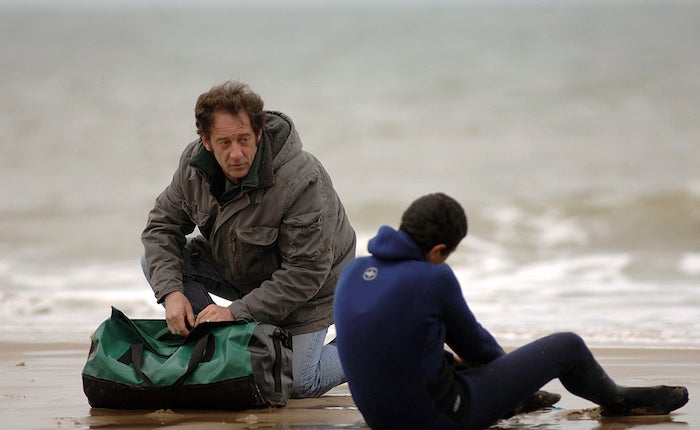
Arch of Triumph (1948)
Beginning April 7, UCLA Film & Television Archive presents a film series that explores the politically charged issue of refugees. This topic is particularly dear to my heart, since I was born a refugee and came to the United States with my parents as a “displaced person.” The Displaced Persons Act of 1948 (Pub.L. 80-774) was passed by the U.S. Congress on June 25, 1948, in order give relief to the hundreds of thousands of refugees stranded in Europe as a result of World War II and the Holocaust. Defined as “displaced” was any citizen who “entered” (i.e. was deported to) Nazi Germany, Austria and its territories between 1939 and 1945. Section 2 (d), however, also defined an “eligible displaced person” as a native of Czechoslovakia who fled as a direct result of persecution or fear of persecution from that country since January 1, 1948, including my dad, who was a concentration camp survivor and had fled his native country in August 1948. The law called for the issuance of 202,000 visas and, as a result, my family was able to begin a new life in Chicago. True to our national heritage, the country did the right thing.

As long as there have been wars, there have been refugees. But in the 20th century, wars were no longer just fought on the battlefields by armies of men, they became total wars that involved the killing of civilian populations. The first great refugee crisis occurred just before World War I with the expulsion and genocide of Armenians in the Ottoman Empire. The second major crisis hit in the 1930s, when thousands of European Jews attempted to flee Nazi Germany and its occupying armies, as the contours of the Holocaust became visible. The State Department’s record on that crisis is not stellar. Given its rampant anti-Semitism, the State failed to fill even the low quotas for immigrants from Eastern Europe, as established by the Immigration Act of 1924. The Displaced Persons Act was a way to atone for that previously shameful behavior. When the Saigon government fell, ending the Vietnam War, our country again welcomed thousands of refugees. We are facing another crisis, but have elected a president who wishes to brand all refugees as potential terrorists.

Welcome (2009)
The migration crisis that has recently hit Europe and the Americas has been different because of the sheer numbers attempting to flee Africa and the Middle East. That perceived threat from non-western regions has led to the rise of nationalist hate parties and leaders seeking to stop them, whether in Hungary, the U.K. or America. The aim of all nationalists is to dehumanize and objectify the nameless masses of the headlines, in order to better exploit them as ideologically defined threats.
The films in our series serve to return to them their human dignity, just as our country until now has always prided itself on welcoming the tired, hungry and poor. They present stories of individuals trying desperately to save their lives, literally, and achieve a better life for their children in a more stable environment. In Transit: Refugees on Film encompasses four crises of the past century. Beginning with the exile of German Jews before WWII, this international survey focus on the aftermath of the Vietnam War, then move on to more recent refugee crises in North Africa and the Middle East, communicating tolerance and understanding. Embracing those values is what has always made America great.
< Back to Archival Spaces blog






 Mobile Navigation
Mobile Navigation

